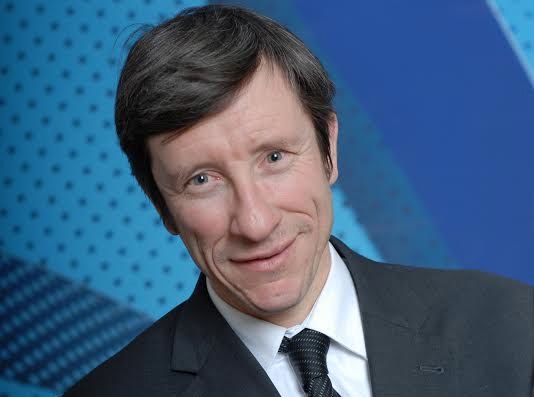2017 will, not in the least, be a quieter year than 2016, and from Amundi analysts point out three key issues to watch: the consequences of Donald Trump’s presidency in the US, the upcoming elections in Europe, and the negotiations over Brexit which, according to Philippe Ithurbide, Global Head of Analysis and Strategy in Amundi, are not priced into the markets. “The consequences for Europe and the United Kingdom will be greater than is believed, and the probability for the UK to get everything it wants is zero: you cannot have everything without paying a price for it.” The expert, who does not believe that the process will be canceled, or that it will be short, predicts long negotiations, lasting many years, which will lead to painful consequences for both the EU and the British. But, despite all of the above, his star commitment for this year is the European stock exchange.
In 2017, growth will not expand beyond 3% (with the exception of markets such as Brazil, Russia or the USA, which will increase their growth), due to the impetus of protectionism, the fall of global trade, and the weakness of the investments, and in which neither is inflation going to spiral (in more than 80 countries throughout the world, the expectations of inflation surpass reality, in some cases there are negative inflations and in Europe it has not arrived yet, he says), the expert explains that the fund management company plans to reduce positions in US stocks and bonds markets (in which they strongly positioned themselves months ago) and to allocate part of those investments to Europe (both stocks and credit) and also to the emerging world.
“In the United States, markets have risen greatly, but neither growth, nor inflation, nor the Fed justify those levels,” explains Ithurbide, who only expects two rate hikes in the US during the year. “After the election, the market became more expensive and we decided not to be short because the momentum was there, but now we can say that the US market is preparing a bubble,” he adds.
He says, however, “in European equities, valuations are more attractive, there is more potential for profit growth, and dividends are the highest in the developed world,” he adds. Which is something that Alexandre Drabowicz, global Co-Head of Equity in Amundi, confirms: “Unlike at other times when profit expectations were high, this year starts from a very low base so that there is room for surprises” , He says, and predicts improvements in sectors such as energy and banks. The management company does not think there will be a re-rating of the asset, but believes that the European stock exchange will be revalued due to the effect of profits, as the expert expects a growth of 10%, coupled with dividend yields of 4% that lead him to predict “very decent returns”.
The fund manager is also very positive with the Japanese stock exchange, which has been the best after the US elections, due to the effect of a low yen, and where he sees “tremendous opportunities from a stock picking point of view”, also in part because of the inflows that will come from pension fund investments and the return of foreign investors, net sellers of the asset last year, who could begin to return.
Emerging Markets: A constructive vision
Their vision is also very constructive in emerging equities, given the economic adjustment of recent years and improvements in current account balances, their attractive valuations (with a discount of 25% -30% in some markets), their cheap currencies (which will be another catalyst for profitability), and also by the low investor positions: “Many investors are underweight in this asset in their portfolios, but will have to reduce those positions: in 2016 they took a first step when entering into emerging debt, and if they go one step further and enter into emerging equities – even if only to place that underweight in a neutral position – they could strongly boost stock market returns. “
The management company is committed to markets with good stories of internal growth (more so than external, in a world that is decelerating globally) with emphasis on countries such as India (where, for example, they’re playing on banking history, since in the last 18 months more than 200,000 current accounts opened, and it is a market in which Pension funds are opening up their investments to the country’s stock), the Philippines, Russia or China. In Latin America, these stories are harder to find, because their economies are more closely tied to commodities, although Peru would be the country of choice. They are underweight in Brazil and, although they are reducing that position somewhat, they believe that it is difficult to be positive with the political problems facing the country. It would also be difficult to commit to markets like Turkey (where they have not invested for years), but the fund manager does support Mexico’s investment case: “There may be volatility, the peso may fall even further… but we will reassign positions gradually, it is a candidate for it,” he says.
Latin America… Debt is Best
In fact, rather than an attractive market from the point of view of equities, Latin America is so from the point of view of fixed income, according to Abbas Ameli-Renani, emerging markets’strategist. In contrast to their 2014-2016 commitment to Central and Eastern European markets (due to the ECB’s EQ benefits and low inflation; markets which he now considers as overvalued and risky if there is an inflationary rebound), their commitment when it comes to debt in local currency is now on Latin America. Thus, markets like Brazil are attractive, both when considering local currency debt and external debt in hard currency, along with other prominent markets such as Russia or Indonesia. He likes local debt because, in many markets (with some exceptions), inflation is lower than that forecast by central banks, which not only does not lead to rate increases, but which will cause them to be maintained or even for some authorities to adopt an accommodative bias, which is positive for local debt. The exception would be Mexico, but it is a market in which the fund manager is looking for buying opportunities, as the central bank is prepared to support the currency if necessary in the face of Trump’s threats. He does not see the same attraction in Turkey.
Nonetheless, Amundi’s strong conviction overweight is emerging market debt in hard currency, thanks to the improvement of fundamentals in those countries, and reminds us that it is an asset which offers the same return as global shares but with a quarter of its volatility.
Trump: A demon for emerging markets?
The fund manager, who believes that China may be a key risk for emerging markets, explains, however, that although the Trump effect may be seen as negative in these markets because of protectionist rhetoric and the implications of rate hikes by the Fed, it should, in fact, help the emerging world due to the implementation of US tax policy, and the country’s growth, which supports greater global growth. “Historically, when the United States has raised rates, the spreads of emerging countries have narrowed,” he points out. And if the Fed raises rates for the same reason, because there is growth, there is no impact either. “Trump will not necessarily be negative for emerging markets: only if there is a combination of strong protectionism, while at the same time the Fed raises rates very aggressively, will there be an impact, but it is unlikely that both events coincide” he added.

 By Alicia Miguel Serrano
By Alicia Miguel Serrano